The Secret to a Bigger Life
The Adam and Eve story, she says, is a warning. "‘You are a serf because God said you should be a serf. I'm a king because God said I should be a king. Don't ask any questions about that.' Stories like Adam and Eve," Benedict says, "reflect the need of cultures and civilizations to maintain the status quo.
‘Things are the way they are because that's the right way.' That attitude is popular among rulers and those who control information." And it has been from the Garden of Eden to the Obama administration.
Curiosity still gets no respect. We live in an era in which, if you're willing to squint, all of human knowledge is accessible on a smartphone, but the bias against curiosity still infuses our culture.
The classroom should be a vineyard of questions, a place to cultivate them, to learn both how to ask them and how to chase down the answers. Some classrooms are. But in fact, curiosity is often treated with the same regard in school as it was in the Garden of Eden. Especially with the recent proliferation of standardized testing, questions can derail the lockstep framework of the day's lesson plan; sometimes teachers don't know the answers themselves. It's exactly the opposite of what you would hope, but authentic curiosity in a typical seventh-grade classroom isn't cultivated—because it's inconvenient and disruptive to the orderly running of the class.
The situation is little better in the offices and workplaces where most adults spend their lives. Sure, software coders or pharmaceutical researchers or university professors are encouraged to be curious because it's a big part of their jobs. But what if the typical hospital nurse or bank teller gets curious and starts questioning how things are done? Outside of some truly exceptional places like Google and IBM and Corning, curiosity is unwelcome, if not insubordinate. Good behavior—whether you're fourteen years old or forty-five—doesn't include curiosity.
Even the word "curious" itself remains strangely anti-curious. We all pretend that a curious person is a delight, of course. But when we describe an object with the adjective "curious," we mean that it's an oddity, something a little weird, something other than normal. And when someone responds to a question with the tilt of her head and the statement, "That's a curious question," she is of course saying it's not the right question to be asking.
Here's the remarkable thing. Curiosity isn't just a great tool for improving your own life and happiness, your ability to win a great job or a great spouse. It is the key to the things we say we value most in the modern world: independence, self-determination, self-government, self-improvement. Curiosity is the path to freedom itself.
The ability to ask any question embodies two things: the freedom to go chase the answer, and the ability to challenge authority, to ask, "How come you're in charge?"
Curiosity is itself a form of power, and also a form of courage.











